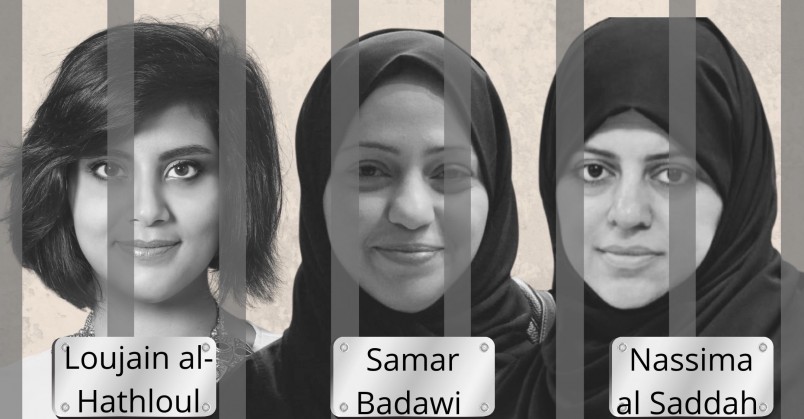
By Shaista Gohir
Over two years ago, in a crackdown on women's human rights defenders, the Saudi authorities arrested and imprisoned several women. Although a few have been released since, some campaigners continue to be held without charge or trial. Saudi Arabia may be polishing its image to the rest of the world by now allowing women to drive and by loosening male guardianship rules, but it was because these very women fought and pushed for those rights for many years. World leaders should be doing so much more to hold Saudi Arabia accountable and they have the perfect opportunity to do so when they participate in the international G20 summit, which this year is being hosted by the Kingdom on 21-22 November, albeit virtually. In fact, this event is days before the International Day for Women Human Rights Defenders, which is marked on the 29th November and the 16 Days of Activism campaign against gender-based violence that commences on 25th November and ends on 10th December, Human Rights Day - the day the United Nations adopted (in 1948), the Universal Declaration of Human Rights.
Ahead of this summit Saudi has already hosted the B20 business event in October for blue chip companies, which even included "creating a more equitable future for women in the business world". This month, a ground-breaking first women's international professional golf tournament was also held in Saudi Arabia. If the change is genuine and the Crown Prince is serious about empowering women, then he should also release all of the Saudi women's rights campaigners immediately, unconditionally and without any restrictions on their movements.
Saudi Arabia may be spending billions on holding events, including the Formula One World Championship, which will be the first Grand Prix Race, but businesses and politicians must not forget about Saudi female prisoners and use these opportunities to continue advocating for their release as well as pushing for further reforms. For example, although Saudi women can now obtain passports and travel abroad without male guardian permission, they have to be over 21. Although the royal decree now gives the mother the right to be a legal guardian of a child and gives women the rights to register a marriage, divorce or birth or obtain official family documents, they still require male guardian permission to marry, leave prison or a domestic violence shelter, and to work, study or seek medical care.
Here are four women who continue to be held without charge or trial:
Loujain al-Hathloul
She is a prominent campaigner for the right for Saudi women to drive and had been arrested and released on several occasions for defying the ban on women driving. She also opposed the male guardianship system. She was arrested again weeks before the driving ban was finally lifted in 2018 and has been in prison since. She is not permitted regular contact with her family and last month began a hunger strike in protest of her conditions and detention.
Nassima al-Sadah
She is a Shia human rights activist and writer and campaigned for civil and political rights, women's rights and the rights of the Shi'a minority. She is a co-founding member of Al-Adalah Center for Human Rights, which was denied a permit to work for human rights. In recent years she was also involved in the women's driving campaign. She was arrested July 2018 and has also been made to spend time in solitary confinement since Feb 2019.
Samar Badawi
She initiated legal proceedings against her father because he did not permit her to marry but her father started a counter court case against her accusing her of disobedience, because he was her guardian. She was therefore jailed in 2010 but released after an international campaign after which her uncle became her new guardian. In 2012, she received the International Women of Courage Award from then U.S. Secretary of State Hillary Clinton and then First Lady Michell Obama. She is the sister of Saudi blogger Raif Badawi who was sentenced to 10 years in prison in 2012 for criticism of officials in the Kingdom. Samar was arrested July 2018 for her activism and continues to be detained.
Nouf Abdulaziz (no image available)
She has been a supporter of constitutional reform in Saudi Arabia and wrote about human rights violations and feminist issues including on her blog website and the Saudi feminist website, Noon Alarabiyah, both of which now are no longer online. She was vocal about the on the ongoing wave of arrests targeting human rights defenders, including numerous women. Along with other women's rights campaigner, She was also then arrested in 2018.
You can join the call to free all Saudi activists by signing the Amnesty petition.
Join Our Movement
Raise your voice and get connected

 1
1